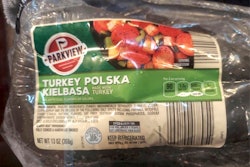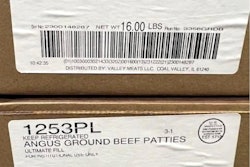In a move to protect the state’s cattle industry, Republicans have introduced two bills in Arizona’s state legislature to squash the threat of cell-based meat. One bill aims to control how cultivated meats are labeled, while the other looks to prohibit the alternatives altogether.
As the world population continues to expand, the food industry is looking for ways not only to successfully feed everyone but to do so in a sustainable way. Traditional livestock farming, particularly beef production, is resource-intensive, contributing significantly to deforestation, greenhouse gas emissions, water consumption, and water pollution. Cell-based meat production has the potential to be more environmentally sustainable, requiring fewer natural resources and producing lower emissions. It bypasses the need for the entire animal, cultivating only the cells associated with meat production.
But a bill introduced by Rep. David Marshall Sr. and four co-sponsors focuses on the protection of Arizona’s cattle ranching industry, which is “integral to this state’s history, culture, values and economy.” HB2121, titled “Cell-Cultured Animal Product; Prohibition,” would prohibit the sale or production of cell-cultured animal products. It would impose civil penalties on anyone producing or selling a cell-cultured animal product for human or animal consumption, and would also create a cause of civil action for anyone adversely affected by violation of the prohibition.
“Cattle is one of the five foundational pillars that have driven this state’s economy since territorial days,” the bill states, adding, “The production and sale of lab-grown, cell-cultured animal product threatens to harm this state’s trust land beneficiaries and the highest and best use of state trust land, which includes the lease of state lands to ranchers for livestock grazing to fund public schools and other public institutions.”
No calling it ‘meat’
Arizona state representatives have introduced two bills relating to the sale of cell-cultured meat in the state. HB2121 would prohibit the sale or production of cell-cultured animal products, and HB2244 would deem cell-cultured products labeled with traditional terms as misbranded.
Rep. Quang H Nguyen and eight co-sponsors introduced the other bill, HB2244, titled, “Misbranding; Misrepresenting; Food Products.” This bill does not aim to ban cultivated meats, but rather to keep it from being called “meat” or like terms. It also takes aim at the plant-based industry.
It is geared toward preventing these emerging industries from “using a term that is the same as or deceptively similar to a term that has been used or defined historically in reference to a specific meat food product or poultry product.” The product cannot be represented as meat or poultry if it is a cell-cultured food product or if it is a synthetic product derived from a plant, insect, or other source.
Just a couple months ago, Italy became the first country to ban cultivated meat. Working to safeguard the country’s traditions, parliament approved a law to prohibit the use, sale, import, and export of food and feed “from cell cultures or tissue derived from vertebrate animals,” according to Reuters.
In the U.S., cell-cultured animal products are jointly regulated by the U.S. Department of Agriculture’s Food Safety and Inspection Service (FSIS) and the Food and Drug Administration (FDA).





















